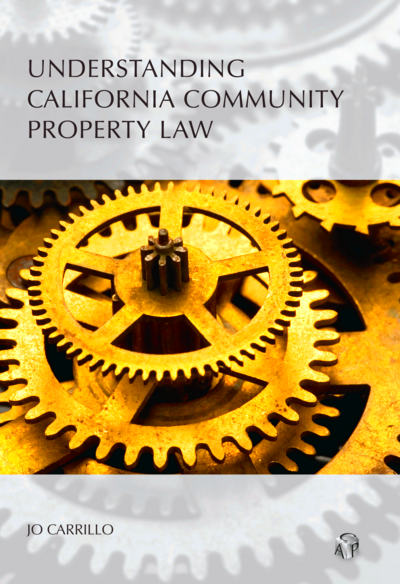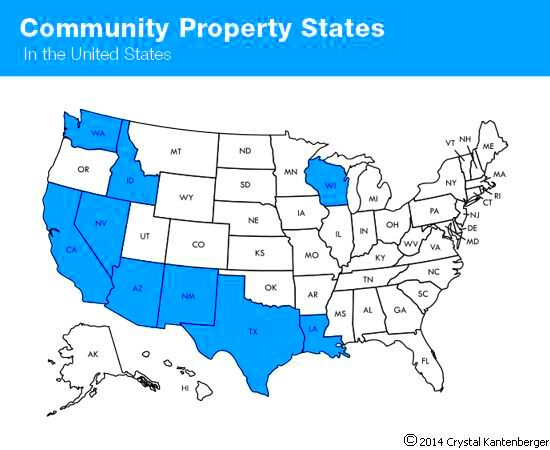Understanding California Community Property Laws Across States
California is one of the few states that follow community property laws. This means that most property acquired during a marriage is owned jointly by both spouses. Understanding these laws is crucial, especially during divorce or separation, as they significantly impact property division. Community property laws aim to ensure fairness by recognizing both spouses’ contributions to the marriage. This article will explore the key features of community property laws, the differences between community and separate property, and how these laws affect couples in California.
Key Features of Community Property Laws

Community property laws have several key features that set them apart from other property laws. Here are the main points to understand:
- Joint Ownership: Property acquired during the marriage is considered jointly owned, regardless of whose name is on the title.
- Equal Division: In the event of a divorce, community property is typically divided equally between spouses.
- Exclusions: Certain assets may be excluded from community property, such as gifts or inheritances received by one spouse.
- Debt Responsibility: Debts incurred during the marriage are generally considered community debts and are shared equally.
- Spousal Rights: Both spouses have equal rights to manage and control community property, but decisions should ideally be made jointly.
These features emphasize the principle of fairness in sharing both assets and liabilities acquired during the marriage.
Differences Between Community Property and Separate Property
Understanding the distinction between community property and separate property is essential for couples in California. Here’s a breakdown of the differences:
| Aspect | Community Property | Separate Property |
|---|---|---|
| Definition | Property acquired during the marriage. | Property owned before marriage or received as a gift/inheritance. |
| Ownership | Jointly owned by both spouses. | Owned solely by one spouse. |
| Division in Divorce | Typically divided equally. | Remains with the original owner. |
| Debt Responsibility | Shared responsibility for debts incurred during the marriage. | Original owner is responsible for debts associated with separate property. |
These differences can have significant implications during divorce or property disputes, making it essential for couples to be aware of their rights and obligations.
Impact of Community Property on Divorce Proceedings
When a couple decides to divorce in California, understanding community property laws is vital. These laws directly influence how property is divided between spouses. The principle of equal division means that most assets acquired during the marriage will be split 50/50, making it essential for both parties to recognize what qualifies as community property.
Here are some key impacts of community property laws on divorce proceedings:
- Property Division: The court will identify all community assets and debts, which can include real estate, bank accounts, and even retirement funds. Each spouse will typically receive half of the total value.
- Negotiation Opportunities: Couples can negotiate their property division outside of court, which may result in a more favorable outcome for both parties. Mediation can be a helpful tool in this process.
- Disclosure Requirements: Both spouses must fully disclose all assets and debts, which ensures fairness in the division process. Hiding assets can lead to legal consequences.
- Impact on Spousal Support: The division of community property can affect decisions about alimony or spousal support, as the financial situation of both parties will change.
Understanding these impacts can help spouses prepare for the complexities of divorce and make informed decisions about their financial futures.
Exceptions to Community Property Rules
While community property laws promote fairness, there are exceptions that can significantly affect asset division during a divorce. These exceptions are important to understand as they can influence the outcome of property disputes.
Here are some notable exceptions to community property rules:
- Separate Property: Any property owned by either spouse before the marriage or received as a gift or inheritance during the marriage remains separate property. This means it is not subject to division.
- Pre-Marital Agreements: Couples can create a prenuptial agreement that specifies how property will be divided in the event of divorce. These agreements can override standard community property laws if properly executed.
- Post-Marital Agreements: Similar to prenuptial agreements, couples can also create postnuptial agreements after marriage to outline how property will be managed and divided.
- Income from Separate Property: If separate property generates income, that income may be considered community property, depending on how the couple manages it.
Being aware of these exceptions can help couples navigate their financial situations more effectively and plan for the future.
How Community Property Laws Vary Across States
While California follows community property laws, not all states do. Understanding how these laws vary can help couples know what to expect during divorce proceedings, especially if they move or have lived in multiple states.
Here are some key differences in community property laws across various states:
| State | Community Property Law | Notes |
|---|---|---|
| California | Community property applies; property is divided equally. | Most assets acquired during marriage are community property. |
| Texas | Also follows community property laws. | Similar rules apply, but there are nuances in certain asset classifications. |
| Florida | Does not follow community property laws. | Property is divided equitably, not necessarily equally. |
| New York | No community property system. | New York follows equitable distribution, meaning the court decides based on fairness. |
Knowing these variations is essential for anyone going through a divorce or considering marriage, as it can affect financial planning and asset management significantly.
Legal Implications of Community Property Ownership
Owning community property in California comes with various legal implications that both spouses should understand. These implications affect not only how property is managed during the marriage but also what happens in the event of divorce, death, or separation.
Here are some critical legal implications to consider:
- Shared Control: Both spouses have equal rights to manage and control community property. This means major decisions regarding selling or mortgaging property typically require both spouses’ consent.
- Debt Responsibility: Both partners are responsible for debts incurred during the marriage, regardless of who incurred the debt. This can include credit card debt, loans, and mortgages.
- Divorce Proceedings: In divorce, community property is usually divided equally, which can lead to disputes. Understanding the laws helps in negotiating settlements.
- Estate Planning: Upon one spouse’s death, community property automatically passes to the surviving spouse. However, it’s wise to create a will to specify any particular wishes regarding other assets.
- Tax Implications: Community property laws can affect tax liabilities. Couples should be aware of how property division impacts capital gains taxes and other financial considerations.
Understanding these legal implications can help couples navigate their financial and legal responsibilities more effectively.
Frequently Asked Questions about Community Property
Community property laws can be complex, and many people have questions about how they apply in various situations. Here are some frequently asked questions that can help clarify these laws:
- What is considered community property? Community property generally includes all assets acquired during the marriage, except for gifts or inheritances.
- Can I convert separate property into community property? Yes, if both spouses agree, separate property can be converted to community property through a formal agreement.
- How is community property divided during divorce? Community property is typically divided equally, but spouses can negotiate different arrangements if both agree.
- What happens if one spouse hides assets? Hiding assets can lead to legal penalties, and the court may award a larger share of the remaining property to the other spouse.
- Do community property laws apply to unmarried couples? No, community property laws specifically apply to married couples. Unmarried couples may need to create agreements outlining property ownership.
Having answers to these questions can help clarify the complexities of community property laws.
Conclusion on Understanding Community Property Laws
Understanding community property laws is essential for anyone living in California or considering marriage. These laws not only dictate how property is divided during divorce but also shape financial responsibilities throughout the marriage. By grasping the nuances of community property, couples can make informed decisions that affect their financial futures.
Here are some final takeaways:
- Know what constitutes community and separate property to protect your assets.
- Communicate openly with your spouse about financial matters to avoid misunderstandings.
- Consider consulting with a legal expert to navigate complex situations, especially during divorce or estate planning.
- Stay informed about how community property laws may vary if you move to another state.
Being well-informed about these laws can help couples create a solid foundation for their marriage and handle any legal challenges that may arise.


